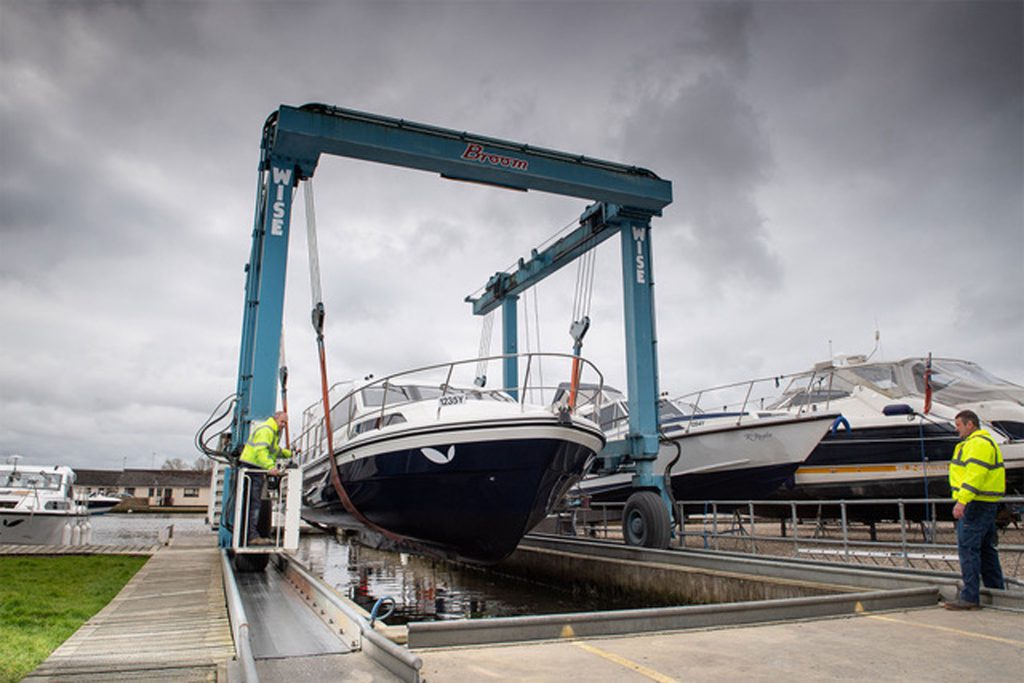
We love to see boats come out of hibernation, have a good scrub down and polish ready to set sail once more.
While seeing your face in a freshly polished hull is satisfying, it’s not all about the finish. Winter isn’t kind to boats. Frost and condensation can damage mechanics and electrics, particularly if a boat isn’t winterised properly.
Recommission your engine
After the winter it’s important to get your engine up to temperature so you can check for problems such as leaks. We take boats to an open section of river where we can run the boat at a higher speed. We look around for oil or coolant leaks and make sure the engine is running correctly.
We’ll then fill the water tanks and bleed the water system. We check for leaks, make sure the immersion is working and recommission the toilets. We’ll also check all electrical systems including lights, navigation equipment and pumps.
It’s also advisable to check for prop damage. If you left your boat on the water over winter, lift it out and inspect the stern gear and hull. This is also a good opportunity to clean the underside, apply new antifouling and check your anodes.
Sludge the fuel tank
Diesel bug in your fuel tank is bad news for your boat. These microbes cause a sludge to form in the bottom of the tank. When this gets stirred up it can clog your filters and make your engine cut out. In extreme cases it can be expensive to fix.
Diesel bug feeds on oxygen from the water so, logically, if there’s no water there’s no oxygen so it can’t multiply. Many boat owners leave their fuel tanks full over winter to prevent condensation in the tank. Diesel however contains some water, so while this may slow diesel bug it won’t stop it altogether.
Before taking your boat out for the first time, sludge your fuel tank to remove the water and reduce build up.
Essential safety checks
Boat safety equipment is an important, but often overlooked, part of boat recommissioning. Life jackets, life rafts and fire extinguishers should be professionally serviced every year.
Don’t forget to check the expiry date on your fire extinguishers and flares as these have a shelf life. Just as you would in your home, also test your carbon monoxide alarms and smoke detectors.
Make sure your safety certificate is valid as you need this to secure your river license from the Broads Authority.
Time for a spruce up
Before setting out you need to reverse winterisation and make sure everything on your boat is in good working order. Afterall, you don’t want to be towed home on your first trip because your engine cut out.
You’ll also want to give your boat a thorough clean inside and out to remove the green muck that accumulates during the winter. At this time of year, you’ll usually find us out on the boats pressure washing and polishing, cleaning the decks, or carrying out interior deep cleans. We’ll also be cleaning fabrics and canopies, even mooring ropes.
Get in touch for more information on boat recommissioning or valeting services.
Follow us on Facebook or Instagram for regular progress updates. Photos of the new kiosk coming soon.
